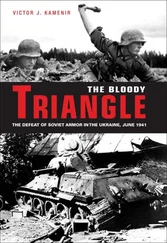At her trial in London in September 1999, the repentant doctor told the judge she felt “deeply ashamed.” The judge was appalled at what Ryniekska had sunk to, calling it “nothing short of outrageous.” The scam, the judge said, was particularly offensive given that she was a qualified medical doctor.
Nonetheless, Ryniekska was sentenced to a mere three months in prison, with a recommendation for deportation immediately upon release.
THE MASSIVE PROFITS from trafficking women into prostitution have also attracted gangs such as the Hell’s Angels in Hamburg, Germany. In January 1999 the Hamburg biker chapter moved heavily into the prostitution racket. In no time it controlled more than 200 East European women in twenty-six brothels and “hour hotels” in the port city’s Sankt Pauli red-light district, as well as two popular Hamburg strip clubs called Pascha and Eros. Their enterprise, however, was uncharacteristically short-lived. Seven members of the gang were arrested in a well-orchestrated sting operation in early November 2000.
According to the 529-page indictment, the bikers trafficked hundreds of Eastern European women into Germany to work as prostitutes in their brothels and fleabag hotels. The women were in the country illegally, were regularly abused and were forced to service clients seven days a week. The operation turned out to be incredibly successful. In the raid police had seized $350,000 in cash, a Lamborghini Diablo, three luxury Mercedes, five other high-end vehicles, a dozen customized Harley-Davidson motorcycles, several handguns and a grenade. The property was recovered from the posh Hamburg district of Elbchaussee from a supposed car mechanic, a photographer, a heating engineer, an electrician and a salesman. Based on the evidence, German police estimated that the bikers’ sex proceeds totaled $17 million.
The bikers were charged with people smuggling, assault causing grievous bodily harm, pimping, blackmail and violent extortion. Their trial began in early August 2001 and was expected to last at least two years. Then, a half-day into the proceedings, echoes began to ricochet in the courthouse corridors that a plea bargain had been reached between the prosecution and the Angels’ high-priced legal team. Two months later the accused gathered in court for sentencing, having pled guilty to a raft of charges. Despite the sheer gravity of the offenses, the bikers received anywhere from one year and four months to four years and eight months—an undeniable coup for the defense team. One biker’s sixteen-month sentence was suspended because the court felt his chances of “reintegrating into society” were high. The gang members were also ordered to pay $5.5 million in fines. Later that day, out on the steps of the courthouse, the biker whose sentence was suspended beamed at the spectators, describing the judgment as “marvelous.”
LIKE MOST CRIMINAL ENTERPRISES, trafficking in women for prostitution has become increasingly territorial. Any infringement on ROC’s turf, for example, is met with swift retribution. ROC syndicates have been known to kill at the slightest hint of trouble. The trade is also resulting in an escalation of unprecedented violence against potential competitors and trafficked women alike. Albanian gangs are particularly notorious for their cruelty, terrorizing and torturing their victims and killing uncooperative girls. In some cases, gangs tattoo their “property” the way cowboys brand their cattle. The Yakuza in Japan have murdered women attempting to escape. The Turkish Mafia and Serbian gangsters have thrown girls from high-rise balconies for refusing to comply.
And when these gangs do kill, they often do it to send a message—as was the case in a brutal double murder that occurred in the Siberian city of Vladivostok on June 24, 1994.
When Natalie Samosalova walked by, heads turned in Vladivostok. The statuesque nineteen-year-old had tumbling blond hair and bedazzling azure blue eyes. In the summer of 1993 she got what she thought was an amazing break—her first opportunity to travel abroad. She was recruited to work as a dancer at the Skylight Disco in the gambling resort of Macau. Her application was expedited by an employment agency—the Society of Support to the Enterprises of Macau. Before she knew it, she found herself with another woman on a long train ride through China. When she finally arrived in Hong Kong she was met by a man called Valhiev. Natalie couldn’t help noticing the jagged scar bisecting the man’s face.
Valhiev, it turned out, was a Russian gangster with a reputation as “the most notorious pimp in Macau.” In fact, he was one of ten known Russian pimps registered with the Macau government as working in local nightclubs as “pianists.” It was safe to assume that none of them could strike a chord. Valhiev escorted the new arrivals to a flat shared by several other Russian women and explained in no uncertain terms what was expected of them. Dancing in nightclubs was not an option unless it was with a paying client. The next day Natalie was taken to a government office, where she was issued an identity card and a six-month work visa. That evening, she joined the ranks of 120 Russian women, most from Vladivostok, working in the enclave as call girls.
Natalie was extremely popular with high-spending clients and fetched a spectacular fee—$1000 to $3000 a night. The Russian gang that controlled her quickly realized her worth. She was a valuable asset, raking in a cool $55,000 a month. In April 1994 she met Gary Alderdice, a dashing lawyer from New Zealand who was renowned for defending members of the Hong Kong Triads. Alderdice was instantly smitten. It was a scene right out of Pretty Woman, except in this case the heroine belonged to the mob.
After a month-long sex-fest (which cost Alderdice $48,000), he professed his love to the glamorous hooker and she decided she wanted to be his. The haughty Natalie told Valhiev she wanted out. Skylight management complied, swiftly withdrawing its support for her visa. Her visa and work permit were summarily revoked, and the very next day Natalie found herself on a plane heading home.
Distraught, she phoned her lover in a panic. Alderdice promised to get her back. In late June he flew to Vladivostok, purportedly with a briefcase containing $150,000 in cash to negotiate her freedom from the mob. Natalie met him at the airport and they headed for her flat. They climbed three flights of stairs to her apartment and she ushered him in.
The very next day, Natalie’s mother dropped by her daughter’s apartment. When Natalie didn’t answer, she knocked louder and harder. Again, nothing stirred. The woman enlisted the help of a neighbor and together they forced open the door. Lying in the hallway was the blood-soaked corpse of a man. He had been shot in the eye at what was clearly close range. In the living room Natalie lay stretched out on the floor, hands tied behind her back with a rope. She too had been shot in the head.
Earlier that morning, at about three-thirty, the neighbor who helped open the door had been jolted out of sleep by noises coming from Natalie’s flat. She couldn’t put her finger on it but it reminded her, she said, of the sound of “people chopping wood.” The neighbor called the police, but her concerns were summarily dismissed. She was told to call back “if something serious happens.”
The ensuing investigation was anything but thorough. Police quickly labeled it a “robbery,” hoping to close the case. The prosecutor’s initial hunch was that Alderdice was simply in the wrong place at the wrong time. Vladivostok, after all, is a naval port, a city known as the “Wild East” where crime and corruption are known to run deep. The prosecutor figured a couple of two-bit thugs saw the dashing, well-dressed lawyer, assumed he was carrying cash and followed him into the decrepit building. But the facts didn’t add up. There was no forced entry. Natalie had been clearly tortured. And the murders were carried out execution-style. From what the investigators were able to piece together, the couple arrived at the apartment but didn’t stay very long. According to the neighbor across the hall, they left a short while later and returned again around 11 p.m. There were at least two other men in tow. The rest remains hazy, but for Alderdice’s friends and colleagues back home, the motive is clear.
Читать дальше












